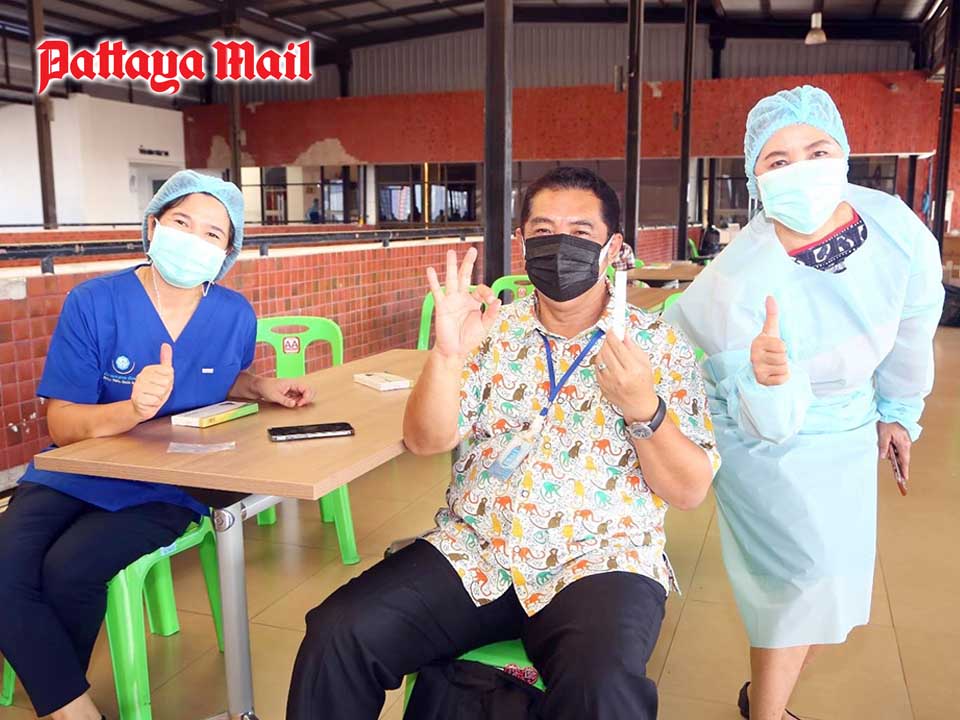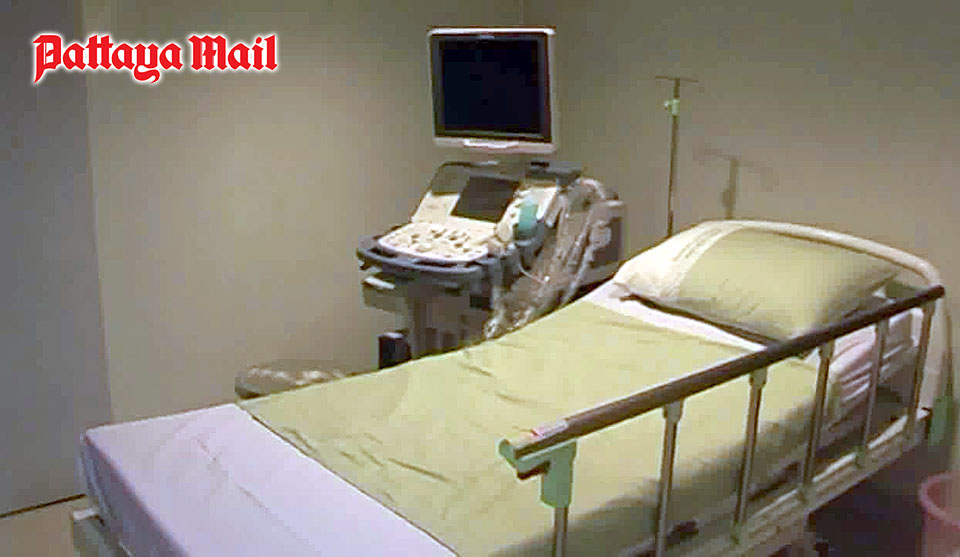
Pattaya’s number of new daily coronavirus cases may be soaring, but hospitalizations remain low, aligning with international trends for the omicron variant.
Mayor Sonthaya Kunplome said area hospitals continue to have plenty of beds available for seriously ill Covid-19 patients. But those currently in the hospital are infected with the more-deadly delta variant, not omicron, the mayor said.
While omicron accounts for the majority of new Covid-19 cases sequenced in Thailand last week, delta remains the dominant active strain overall. That will change as cases increase and delta patients are discharged from the hospital or die.
Chonburi on Thursday reported 832 more Covid-19 cases, 467 of which were found in Banglamung District, which includes Pattaya.

The vast majority of those 467 patients will be isolated at home or interned in a hospitel, as they exhibit no or mild symptoms.
Pattaya quickly filled its first hospitel with 360 beds, Sonthaya said, but 1,400 more beds came online this week. With most being isolated and given medicine at home, plenty of hospitel beds remain open.
However, the Thai Hotels Association Eastern Chapter said it expects to need 5,000-8,000 beds by the time the wave peaks.
Sonthaya indicated that might not be true. Unlike in the past, not all hospitel patients are being held for 10-14 days. Due to the decreased severity of omicron, people are recovering and being sent home in as few as seven days, he said, noting most people have recovered after five days.
Hospitels are free for Thais covered by Social Security, those with a Universal Healthcare “gold card” or private insurance. Others must pay 500 baht a day for the room, but medicine and treatment are free.

 |
 |
 |





